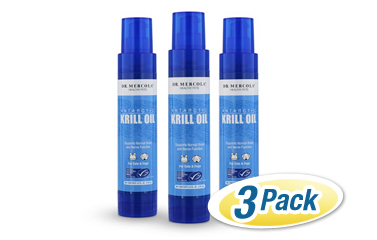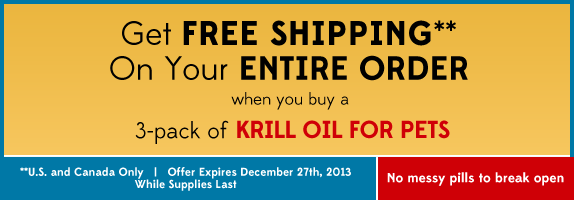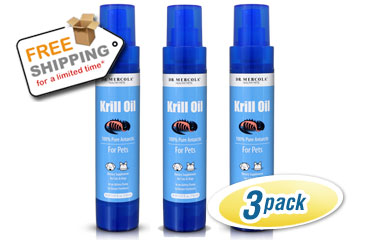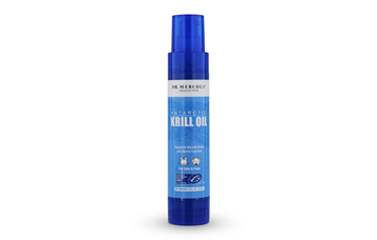As a reader of Mercola.com, you know how important essential fatty acids are to your own health.
What about your pets? Are they receiving the fatty acids they need?
Fatty acids are important to your pet's health in ways you'd never expect.
Fortunately, it is easy to provide your pet with fatty acid support, once you know what to look for...
Fatty Acids: The Many Benefits for Your Pet's Well-Being
If you notice any of these signs, chances are your pet may benefit from supplementation of fatty acids...
- Dry, scaly, flaky skin
- Greasy hair or coat
- Blemishes or spots
And these are just the visible signs. There are other things - not so obvious - lurking beneath the surface.
Fatty acids are important not only for your pets' skin, coat, and eyes, but we're now discovering how critical they are for your pet's immune health.
Let's take a look at why some fatty acids are so important...
Elusive Fatty Acids
Fatty acids are types of polyunsaturated fats. The two main classes that are especially important for your pet are omega-3 and omega-6 fatty acids.
Certain fatty acids are referred to as essential fatty acids because they can't be made by your dog or cat's body and therefore must be supplied by their diet.
Omega-6 fatty acids include:
- Linoleic acid (LA) (essential fatty acid for dogs and cats)
- Gamma linolenic acid (GLA)
- Dihomo-gamma-linolenic acid (DGLA)
- Arachidonic acid (AA) (essential fatty acid for cats)
LA (linoleic acid) is an important omega-6 essential fatty acid for your pet's health. Dry, brittle, and lack-luster coats can result from a linoleic acid deficiency.
Omega-3 fatty acids are also important for your cat or dog, although they are not classified as essential fatty acids for pets, and include:
- Eicosapentaenoic acid (EPA)
- Docosahexaenoic acid (DHA)
- Alpha-linolenic acid (ALA)
ALA can be converted into EPA, but not in the skin. As you'll soon see, omega-3s can make a difference in your pet's health.
Omega-3 and Omega-6 Fatty Acids - What Will Really
Benefit Your Pet?
Your pet benefits from both omega-3s and omega-6s for healthy growth and development, as well as an optimally-functioning immune system.
Both omega-3 and omega-6 fatty acids make up cell membranes, the semi-permeable layers that allow nutrients to pass in and wastes pass out of cells.
Omega-3 EPA and ALA help keep the cell membranes flexible and permeable. On the other hand, excess omega-6 AA may result in membranes that are brittle, sluggish, and inefficient.
A cell's membrane releases both EPA and arachidonic acid (AA), and these two substances compete for the same metabolic enzymes. If AA is in greater abundance than EPA, AA seizes the enzymes.
These enzymes enable AA, leading to a less than optimal immune function.
In essence, at the cellular level, DHA and EPA help support the immune system.
The Many Health-Promoting Benefits of Omega-3s
Omega-3s, including EPA, ALA, and DHA, support the optimal functioning of many organs and systems in your pet's body. Canine and feline research shows that omega-3 fatty acids help...
- Support your pet's natural response to environmental stressors
- Promote the production of prostaglandins and leukotrienes, substances that help support immune response
- Increase joint comfort
- Support skin and ear health
- Support healthy retina and visual cortex development
- Maintain normal blood pressure levels already within the normal range
- Promote already healthy heart rhythms and endurance
- Support healthy cell growth
- Maintain normal levels of plasma triglycerides and cholesterol that are already within the normal range
- Promote already normal renal function
- Support healthy growth and reproduction
Omega-3s and Your Pet's Brain and Nervous System
As you've just seen, ensuring adequate amounts of omega-3 fatty acids has an immensely supportive effect on your pet's overall health.
DHA in particular is one of the most important nutrients for supporting brain function and behavior for your pet.
It's been demonstrated that feeding mother dogs a diet enriched with DHA during gestation an lactation results in improvements in neurological development of their puppies.
Studies also suggest that, with sufficient DHA and adequate antioxidants to protect the fragile fatty acids, older dogs are more alert, remember more, and retain the ability to stay mentally sharp.
DHA is a major building block of your pet's brain and may also be a critical element in the development of vision and the central nervous system. In fact, the brain is 60 percent fat, a quarter of which is DHA. DHA is also the primary fat in your pet's retina.
Your dog's ancestral diet included rich sources of DHA, including prey animals. If they lived near fishing villages, their natural diet included fish, fish heads and guts, and aquatic plants such as algae, plankton, and seaweed.
Warning: Many Pets' Diets Contain Too Few Omega-3s and
Too Many Omega-6s
It's vitally important that your pet receives the proper ratio of omega-6s and omega-3s in their diet.
When evaluating if your pet's diet contains the right balance of omega-6 fatty acids and omega-3s, consider these two points:
- It's the ratio that matters. Current recommendations for ratios of omega-6 to omega-3 fatty acids are 10:1 to 5:1. Today's typical pet's diet far exceeds this optimal ratio.
- The real focus is on the EPA and DHA content of your pet's diet - the omega-3 fatty acids that are most important to support your pet's health.
How Does YOUR Pet's Diet Stack Up?
Based on what I see in my practice, most pet owners believe their cats and dogs receive all the fatty acids, including the omega-3s, they need in their food.
Perhaps at one time this was true.
However, if you feed your pet a commercially prepared dog or cat food, it's likely they have a fatty acid deficiency or imbalance.
Let me explain...
The meats, poultry, and fish used in processed pet foods today supply an overabundance of omega-6s, thanks to reliance on cheap cereal grain animal feeds.
The corn products, vegetable oils - such as corn, soy, safflower, and canola oils, chicken and meat fats all found in pet foods are packed with omega-6 fats.
How You May Be Unintentionally Creating a Fatty Acid
Imbalance in Your Pet
Clearly, there are far more omega-6 fatty acids in your pet's food today than in years past - and certainly more than what their ancestral diet provided. According to the University of Maryland Medical Center, "It is very important to maintain a balance between omega-3 and omega-6 fatty acids in the diet. A proper balance helps maintain and even improve health."
To make matters worse, manufacturers tend to not supplement commercial pet foods with the omega-3s your pet can actually use.
Even if they do, the heat from the canning or kibbling process typically destroys their healthy benefits. Not only are omega-3s sensitive to heat, they become rancid when exposed to oxygen for extended periods.
DHA, in particular, is very susceptible to oxidation and spoilage.
With the overabundance of omega-6s and few viable omega-3s found in commercially prepared dried and canned food diets, you may actually be contributing to an imbalance in your pet by feeding them food purchased at your grocery or specialty pet food store.
How to Ensure Your Pet Receives the Omega-3 Fats They Need
Since most commercial pet foods contain more omega-6s than omega-3s, your dog or cat may benefit from supplemental omega-3 fatty acids.
The best source of omega-3s for dogs and cats, hands down, is from marine oils.
Krill oil, fish oils - including salmon, sardine, squid, and anchovy oils - are rich in omega-3 fatty acids, especially DHA and EPA.
Vegetable-derived oils, including olive oil, do not contain EPA and DHA, but rather the less bioavailable, inactive precursor form, ALA.
And, as a side note, it's healthiest not to feed your kitty any form of vegetable oil.
Here's the problem with vegetable oils... For your pet to benefit nutritionally, ALA must first be converted to EPA and DHA by special enzymes.
Cats' genetic makeup severely limits them from converting ALA into EPA and DHA. For them, plant-based omega-3 fatty acids are not absorbable.
Evening primrose, borage, pumpkin seed, and sunflower oil are rich in omega-6 fatty acids, which your pet most likely doesn't need supplemented.
Marine Oils Are Not Created Equal When It Comes to
Omega-3 Fatty Acids
There are several problems with fish oils - which you may already be aware of if you've checked out omega-3 supplements lately for yourself or your family.
Today, many fish are highly contaminated with industrial pollutants and toxins such as mercury, PCBs, heavy metals, and radioactive poisons.
They're not the best for you and your family - and they're not the best for your pet.
In fact, because of your dog or cat's smaller size, they can develop adverse toxicity symptoms even faster than humans can.
Another problem with fish oil is its lack of natural antioxidants. When you use fish oil, extra antioxidants can help to protect the fatty acids from oxidization. Omega-3 fatty acids are highly perishable and can become rancid inside your pet's body.
If They're Potent Enough to Nourish Whales...
There's a far better solution that I recommend for my patients' omega-3 needs.
Krill oil is made from the largest, renewable biomass in the world.
Whales consume very large quantities of these small, shrimp-like creatures to provide their daily energy needs. In fact, a single blue whale devours up to 8,000 pounds of krill each day during feeding season!
Highly intelligent whales aren't the only animals who feast on krill. Fish, penguins, sea birds, and squid all depend on krill for their nutritional needs.
But here's why I like krill oil so much for cats and dogs:
- Krill do not accumulate heavy metals.
- Krill has a very high absorption rate, so your pet typically needs a fifth the dose of regular fish oil to receive similar benefits.
- Dihomo-gamma-linolenic acid (DGLA)
- Krill contains more EPA than fish oil (240 mg/g EPA in krill vs.180 mg/g in regular fish oil).
- Krill delivers its abundant EPA and DHA as phospholipids directly into your pet's cells, unlike fish oil's less beneficial free triglycerides form.
- Krill are a thriving, highly sustainable food source - only a few percent are carefully harvested each year.
- Krill packs along natural antioxidant protection to help guard against oxidation of fragile omega-3 fatty acids and damage from free radicals.
- Krill's plentiful EPA and DHA has been scientifically studied to significantly reduce plasma arachidonic acid (AA).
Phospholipids - The Gatekeeper to Your Pet's
Vibrant Health... And Smarts
The phospholipids in krill oil are what make it a far superior omega-3 fatty acid supplement.
Phospholipids - smart, tiny packets of fatty acids - are the building blocks for your pet's cellular membranes. This special phospholipid binding enables the fatty acid "packages" to pass through your pet's intestinal wall cell membranes with ease, allowing for a greater absorption rate.
Abundant quantities and better utilized omega-3s mean a much improved omega-3 to omega-6 ratio for your pet.
Remember when I talked earlier about the effect DHA has on the behavior and intelligence of your pet?
The most predominant phospholipid in krill oil is phosphatidyl choline, a major part of your pet's cell membranes.
Phosphatidyl choline is important for your dog or cat for several reasons:
- Breaks down into choline, the precursor for acetylcholine, which transmits nerve signals to the brain
- Assists with liver detoxification pathways
- Makes dopamine, a nerve chemical essential for normal brain function
- Aids in brain and liver function by assisting with the absorption of carnitine from the digestive tract (Carnitine is essential for mitochondrial function, supplying the liver and brain with energy.)
- Supports brain development, learning and memory. Recent studies affirm choline's effectiveness in maintaining cognitive function in dogs and cats
Why Krill Oil Is Your Best Option for Supplying
Your Pet's Omega-3 Fatty Acids
If you're familiar with our New and Improved Krill Oil, then you already know we offer one of the finest, purest krill oils in the world.
We decided that your pet deserves the same, pure Krill Oil from the pristine Antarctic seas that's available to you and me. If it's good for us, why not them, too?
Krill Oil for Pets stands above other natural omega-3 sources, including other Krill Oil products on the market because it:
- Delivers essential fatty acids in the form of phospholipids for enhanced transport across your pet's cellular membranes
- Contains a newly-discovered health-boosting flavonoid never before isolated in non-plant sources
- Has a higher rate of absorption so smaller doses are sufficient
- Has greater resistance to spoilage and rancidity
- Is without no undesirable side effects even at high dosages
- Is free from mercury contamination unlike many other marine sources
- Offers all the best antioxidants not found in fish or cod liver oil
- Contains a full 30 g/100g of pure omega-3s, with at least 300 mcg/g more astaxanthin antioxidants, unlike other products with less than 10% omega-3 fats (all in the form of triglycerides).
You Can't Beat the Antioxidant Power in
Krill Oil for Pets
Simply, the more omega-3 and omega-6 fatty acids in your pet's diet, the greater the need for antioxidant support.
Krill Oil for Pets is naturally loaded with antioxidant power, including the antioxidant vitamins A and E, plus astaxanthin and canthaxanthin, both naturally-occurring carotenoid antioxidants.
Astaxanthin and this unique marine-source flavonoid in Krill Oil for Pets bond with the EPA and DHA, boosting antioxidant power directly to the cell.
Revolutionary Dispensary System Eliminates Rancid Oils
and Messy Pills
Want to Feed Your Pet The Healthiest Diet Possible?
Show them you care with a homemade, species-specific diet prepared in your own kitchen.
Dr. Becker's Real Food for
Healthy Dogs and Cats
- Provides easy-to-follow recipes and everything you need to know to prepare the freshest, most wholesome food for your pet.
- Based on your pet's Ancestral diet, every recipe meets NRC and AAFCO nutritional guidelines.
- Offers a rotational feeding plan complete with vegetables, fruits, and supplements, including omega-3-rich Krill Oil.
Help protect your pet from unnecessary illness and disease
by feeding them the diet that's
best for them.
Whether you make your own pet food or you purchase a high-quality commercial pet food, supplementing with extra omega-3s is an important option for ensuring your pet's best health.
And if you've ever taken on the delightful task of cutting open fatty acid oil capsules to sprinkle on your pet's food, you too will be thrilled at this next bit of news I'm about to share.
You no longer have to deal with messy pills.
For my Krill Oil for Pets, we use a revolutionary dispensing method that keeps freshness in and contamination out.
A technologically-advanced airless pump delivery system locks freshness in and keeps air and contaminants from entering the container.
As I mentioned earlier, omega-3s are especially susceptible to damage when exposed to air. An airless pump helps protect against oxidation of fragile fatty acids. You're simply guaranteed a fresher, more wholesome Krill Oil until the very last drop.
And there's no guessing. One or more gentle pumps of your fingertip delivers the precise amount of Krill Oil directly onto your pet's food. No mess. No sticky, oily fingers. Just the right amount of healthy omega-3 fatty acids exactly where you want it!
You'll even save money since there's no waste. You're assured that the oil at the bottom of the container is just as fresh and pure as the first pump.
Here's a guide for providing your pet the Krill Oil for Pets they need for their size and weight. I provide you with a suggested range so if your pet would benefit from more omega-3s, you can safely provide a larger dose without adverse side effects.
Give Your Pet the Missing Ingredient to their Health
and Well-Being - Krill Oil for Pets
Your pet can be better balanced easily. Especially with regard to omega-3 fatty acids.
Fatty acid balancing requires some time. Be patient. You will see signs that your efforts are working.
It's important to keep in mind your pet's body improves from the inside out. Benefits start at the level of the individual cell membranes, then proceeds from there.
Outward symptoms are sometimes the last to clear. It's what's happening on the inside that matters most to your pet's health.
Gradually you'll notice improvements in his or her skin and coat. When you see these changes, you'll know the internal workings of your pet are experiencing greater health.
Make a decision today to support and help boost your pet's overall health with my favorite source of omega-3 fatty acids. Order Krill Oil for Pets today.
Here's a guide for providing your pet the Krill Oil for Pets they need for their size and weight. I provide you with a suggested range so if your pet would benefit from more omega-3s, you can safely provide a larger dose without adverse side effects.
How Much Do You Need?
 |
Cats: |
Maintenance/well-being dose:
1 pump daily
Intermittent Immune/Inflammation Support dose:
2 pumps daily
|
|
 |
Large Dogs (50 - 79 lbs) |
Maintenance/well-being dose:
8 pumps daily
Intermittent Immune/Inflammation Support dose:
16 pumps daily
|
|
 |
Small Dogs (15 - 29 lbs) |
Maintenance/well-being dose:
3 pumps daily
Intermittent Immune/Inflammation Support dose:
6 pumps daily
|
|
 |
Extra Large dogs (80+ lbs) |
Maintenance/well-being dose:
10 pumps daily
Intermittent Immune/Inflammation Support dose:
20 pumps daily |
|
 |
Medium Dogs (30 - 49 lbs) |
Maintenance/well-being dose:
5 pumps daily
Intermittent Immune/Inflammation Support dose:
10 pumps daily
|
|
|
|
|
|
|
|

|
Incredible Deal!
Krill Oil for Pets
3.92 fl. oz. / 116 ml Per Bottle
| MSRP: | $74.91 | | Your Price: | $64.97 | | Savings: | $9.94 (13%) |

|
Out of Stock Notice: Due to high demand, these products are temporarily out of stock. We expect to have a supply soon, so please keep posted. Thank you for supporting Mercola.com!
- Krill Oil Liquid Pump for Pets (268 Pumps): 1 bottle
- Krill Oil Liquid Pump for Pets (268 Sprays): 3-Pack

| 
|
Incredible Deal!
Krill Oil for Pets
3.92 fl. oz. / 116 ml Per Bottle
| MSRP: | $74.91 | | Your Price: | $64.97 | | Savings: | $9.94 (13%) |

|
Out of Stock Notice: Due to high demand, these products are temporarily out of stock. We expect to have a supply soon, so please keep posted. Thank you for supporting Mercola.com! - Krill Oil Liquid Pump for Pets (268 Pumps): 1 bottle
- Krill Oil Liquid Pump for Pets (268 Sprays): 3-Pack
|
**Free Shipping to US and Canada Only

|
Krill Oil for Pets
3.92 fl. oz. / 116 ml Bottle
| MSRP: | $43.75 | | Your Price: | $34.97 | | Savings: | $8.78 (20%) |

|
Out of Stock Notice: Due to high demand, these products are temporarily out of stock. We expect to have a supply soon, so please keep posted. Thank you for supporting Mercola.com! - Krill Oil Liquid Pump for Pets (268 Pumps): 1 bottle
|
I am so confident that you will be more than satisfied with your purchase of Krill Oil for Pets, I am providing a Lifetime Satisfaction Guarantee!
The Lifetime Satisfaction Guarantee allows you to receive a full refund* (less shipping charges) when you return an item within 60 days as long as the product is in its original packaging and has at least half of the product remaining. Products returned after 60 days that have at least half of the product remaining will receive store credit (less shipping charges).
Click Here for Full Return Policy Details
View Product Label
Click to view